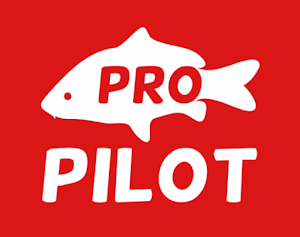Winter carp fishing in the UK is often overlooked in favour of the warmer months, but those who brave the colder weather know that this season holds some unique advantages. Carp fishing in winter offers a different, more serene experience with fewer anglers, stunning winter landscapes, and the potential for big catches as the fish gather in specific areas. In this post, we’ll explore the top 10 reasons why winter carp fishing is an excellent pursuit for those willing to bundle up and head to the bank.
1. Less Angling Pressure
One of the most appealing aspects of winter carp fishing is the decrease in fishing pressure. The banks are much quieter during the colder months, with far fewer anglers out in the elements. Many anglers pack away their gear at the first sign of frost, giving those who continue fishing a significant advantage.
With less competition, you can take your time selecting your swim, knowing that prime spots are likely to be free. This reduced pressure also affects the behaviour of the carp. Carp can become wary in heavily fished waters, but with fewer lines in the water during winter, they may be less cautious, giving you a better chance of success.
Angling during the off-season also allows you to enjoy a more peaceful experience. With fewer people around, you can immerse yourself in nature and enjoy the tranquillity of the season.
2. Big Carp on the Move
Carp behaviour changes in winter as they become more sluggish and conserve energy. However, while they feed less frequently, winter is the time when big carp are more likely to be caught. As the water cools, carp gather in specific areas, typically deeper waters where the temperature is more stable.
Larger carp are known to feed during the winter to maintain their body weight, and with fewer smaller fish competing for food, your chances of hooking a personal best are higher. Big carp are a significant draw for many anglers, and targeting these fish in the winter can be highly rewarding.
Understanding where the carp congregate during the colder months is essential. Once you locate their winter haunts, you can set up with confidence, knowing you’re in the right place to catch that elusive big one.
3. Stunning Winter Scenery
Winter transforms the landscape, and fishing in the colder months gives you the chance to experience the beauty of nature in a different way. Early morning frost on the grass, mist rising from the water, and the quiet of a winter’s day can make for a magical setting.
There’s something undeniably special about fishing in winter. The stillness of the water, the crisp air, and the possibility of snow create a peaceful and picturesque environment that’s hard to beat. This unique atmosphere can make the experience of winter carp fishing more enjoyable, even if the fish aren’t biting as frequently as in summer.
Additionally, the low winter sun can create some spectacular lighting, perfect for photography. Capture those moments with a beautiful carp in your arms, the steam rising from the water, and the golden glow of the winter sun in the background. These moments are often missed by those who only fish in the warmer months.
4. Improved Water Clarity
In the summer, algae blooms can reduce water clarity, making it difficult to see what’s happening below the surface. In contrast, winter’s cooler temperatures help clear the water, offering much better visibility.
For those who enjoy sight fishing or simply want to observe the behaviour of carp and other aquatic life, winter offers a clearer view. Improved water clarity also helps when selecting rigs and bait presentations. You can fine-tune your tactics based on what you can see, giving you a better chance of enticing those elusive carp.
Water clarity can be a significant advantage, especially in deeper venues where clear water allows you to spot fish movement and activity that might otherwise go unnoticed in murky conditions.
5. Carp Feed in Specific Windows
One of the most interesting aspects of winter carp fishing is that the fish tend to feed in more predictable patterns. While they may not feed as frequently as in warmer months, when they do, the feeding windows can be quite reliable.
By observing the conditions and timing your sessions right, you can increase your chances of success. Carp often feed when the water temperature rises slightly, such as during midday when the sun has had a chance to warm the water a little.
Winter carp fishing requires patience, but once you’ve identified these feeding windows, you can maximise your time on the bank. Understanding these patterns can lead to more productive sessions, even if they’re shorter than your typical summer outings.
6. Perfecting Tactics
Winter offers a fantastic opportunity to refine your carp fishing tactics. With carp behaving differently in cold water, you’ll need to adapt your approach, which helps improve your skills as an angler.
Winter fishing encourages you to experiment with different rigs, baiting strategies, and locations. For example, using smaller, more nutritionally rich baits can be more effective, as carp won’t need to feed as much to sustain themselves. You might also find that single-hook baits or zig rigs work better than the heavy baiting strategies often employed in summer.
The slower pace of winter fishing allows you to focus on honing these skills without the pressure of constant bites, giving you the space to analyse and adjust your approach.
7. Better Bait Efficiency
In the warmer months, carp often compete with other species for food, and it’s easy to go through large quantities of bait. In winter, however, there’s less competition, and carp are less active, so baiting strategies become more precise and efficient.
You’ll use much less bait in winter, which means you can afford to use higher-quality, more nutritious offerings without breaking the bank. Quality over quantity is the key to winter baiting, and with carp feeding more selectively, you’ll want to make sure that every bite is packed with the nutrients they need.
Smaller, more targeted baiting approaches not only save you money but also help prevent overfeeding the fish, ensuring that they are more likely to take your hook bait when they do feed.
8. Tackle Tuning
Winter is an ideal time to get your tackle in top shape. With fewer distractions and slower fishing, you can spend more time making sure your gear is perfectly tuned for the conditions.
Cold weather can be tough on gear, so ensuring that your tackle is winter-ready is crucial. This includes checking your reels, line, and rigs for wear and tear, as well as making sure you have the right clothing and equipment to keep warm.
It’s also a great time to experiment with new rigs and techniques. The slower pace of winter fishing means you can spend time perfecting your rigs, trying out different lead setups, or testing out new hook patterns.
Fine-tuning your tackle during winter gives you a head start for the busy spring and summer seasons. You’ll be better prepared and more confident in your setup when the warmer weather returns.
9. Quieter Venues
Many of the more popular carp fishing venues can be crowded during the warmer months, making it difficult to find a quiet spot. In winter, however, these same venues are often deserted, giving you the freedom to choose the best swims without worrying about other anglers.
Quieter venues allow you to explore different parts of the water that might be inaccessible or overfished in summer. You can take your time setting up and focus on finding the perfect location without the pressure of competition.
The peaceful atmosphere also means that the carp are likely to be less disturbed, making them more likely to feed. This combination of a quieter environment and more relaxed fish can lead to some very productive winter sessions.
10. Personal Satisfaction
Finally, there’s a deep sense of personal satisfaction that comes with winter carp fishing. The colder months are more challenging, both physically and mentally, but those who persevere are often rewarded with some of the most memorable fishing experiences.
Catching carp in winter feels like a true accomplishment. You’ve braved the cold, fine-tuned your approach, and remained patient. When that bite alarm finally sounds, it’s a moment of pure exhilaration, and landing a carp in these conditions feels like a hard-won victory.
Winter carp fishing tests your resilience, but it also strengthens your skills and makes you appreciate the sport even more. The sense of achievement you feel after a successful winter session is incomparable, and it’s one of the main reasons why dedicated anglers continue to fish through the coldest months of the year.
Conclusion
Winter carp fishing in the UK offers a unique and rewarding experience for those willing to brave the elements. From the tranquillity of the water to the chance of catching big carp, there are plenty of reasons to hit the banks during the colder months. While it may require a different approach and more patience, the satisfaction of landing a winter carp makes it all worthwhile. Whether you're an experienced angler or new to the sport, winter fishing provides an excellent opportunity to hone your skills and enjoy the beauty of the season. So, gear up, embrace the cold, and discover the joys of winter carp fishing.






